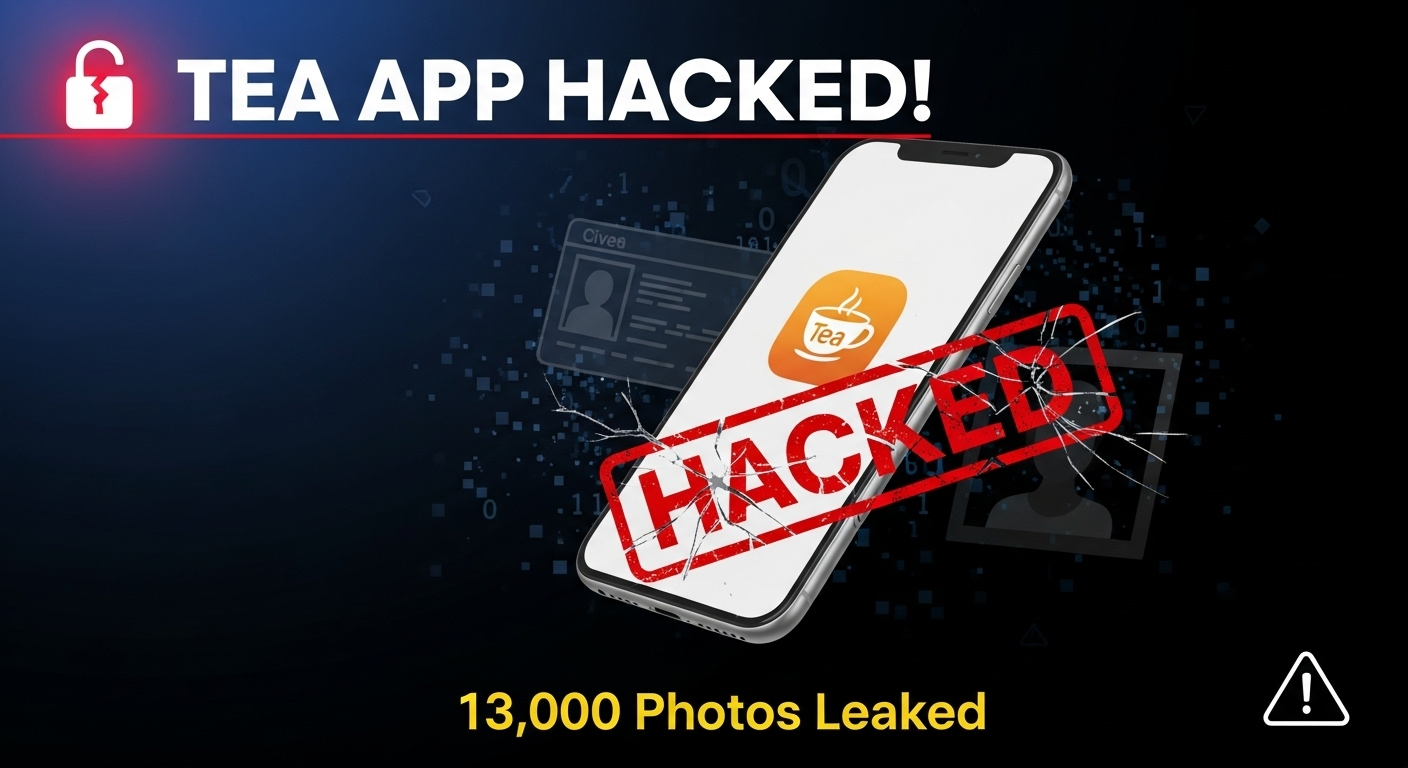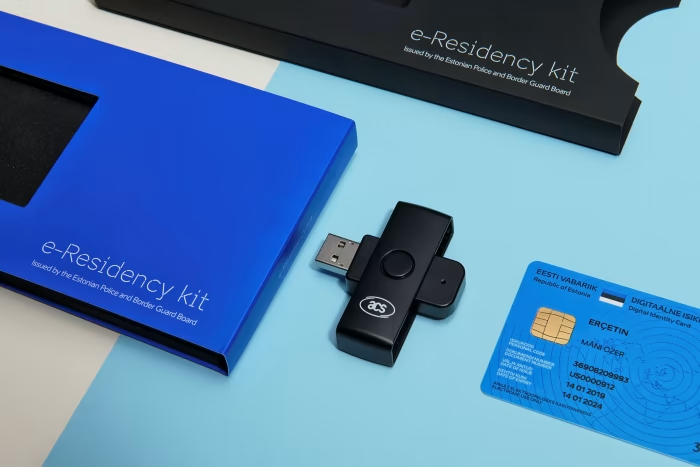Tea App Hack Leaks 13,000 Women’s Photos, IDs: Privacy Nightmare Unveiled

On July 25, 2025, the Tea app, a platform meant to be a safe space for women to share dating experiences, suffered a massive data breach. Hackers accessed and leaked around 72,000 images, including 13,000 selfies and government-issued IDs used for account verification. This incident has raised serious concerns about online privacy and the safety of personal data. Let’s break it down to understand what happened, why it matters, and what it means for users.
What Is the Tea App?
The Tea app, launched as a women-only platform, lets users share information about men they’ve dated. It’s designed to help women avoid risky situations by flagging men as “red flags” or “green flags” based on user experiences. The app surged to the top of the Apple App Store’s free app charts in July 2025, boasting over 4 million users and a waitlist of nearly 900,000. To join, women must submit a selfie and sometimes a government ID to verify their identity, which the app claims to delete after review.
This section introduced the Tea app’s purpose and popularity. Now, we’ll dive into the details of the breach itself.
How the Breach Happened
The breach occurred when hackers accessed an unsecured database, specifically a Firebase storage bucket with no password or encryption. This database, described as a “legacy system” from over two years ago, held sensitive user data. Here’s the thing: the lack of basic security measures, like authentication, made it easy for hackers to download 72,000 images, including 13,000 verification photos and 59,000 images from posts, comments, and direct messages.
- Verification Photos: 13,000 selfies and IDs, like driver’s licenses, submitted during signup.
- Public Content: 59,000 images from user posts and messages, already viewable within the app.
A 4chan post first exposed the vulnerability, with users sharing links to the stolen data. Tea confirmed the breach to 404 Media, stating it affected users who signed up before February 2024. No email addresses or phone numbers were reportedly accessed.
This section explained the technical failure behind the breach. Next, we’ll look at why this is such a big deal for users.
Why This Breach Matters
The leak of personal photos and IDs is a serious privacy violation. For users, it’s not just about embarrassment—it’s about real risks like identity theft or stalking. Driver’s licenses contain sensitive details like full names and addresses, which can now be searched online. Here’s what this really means:
| Risk | Impact |
|---|---|
| Identity Theft | Hackers can use IDs to open fraudulent accounts or steal personal information. |
| Stalking/Harassment | Leaked selfies and addresses expose users to potential real-world threats. |
| Reputation Damage | Private photos shared publicly can harm personal or professional lives. |
The app’s promise of anonymity and safety feels broken. Many users trusted Tea to protect their data, especially since it blocked screenshots to prevent leaks. The breach has sparked outrage, with users flooding Tea’s Instagram page, demanding answers about their data’s safety.
This section highlighted the real-world consequences of the breach. Now, let’s explore how Tea is responding.
Tea’s Response to the Crisis
Tea’s spokesperson confirmed the breach on July 25, 2025, and said the company is taking action. They’ve hired third-party cybersecurity experts to investigate and secure their systems. The company insists no additional user data has been affected, and they’re working “around the clock” to prevent further issues. Tea also clarified that the leaked data was stored to comply with law enforcement rules on cyberbullying prevention, though this claim has raised eyebrows.
Here’s what Tea has promised:
- A full investigation into the breach’s scope.
- Strengthened security to protect current and future users.
- Transparency, with plans to share investigation findings soon.
Despite these efforts, users remain skeptical. Posts on X, like one from @ZTobias114838, called the leak “the worst PII [Personally Identifiable Information] leak I’ve ever seen,” noting that some IDs are now on searchable online maps.
This section covered Tea’s immediate response and user reactions. Next, we’ll examine the broader implications for online safety.
What This Means for Online Privacy
The Tea breach isn’t just a one-off—it’s part of a bigger conversation about online safety. Apps like Tea collect sensitive data to verify users, but this can backfire if security is weak. The incident raises tough questions: Can apps truly keep personal data safe? Should users trust platforms with their IDs? Here’s the thing: requiring selfies and IDs might help verify users, but it also creates a goldmine for hackers if protections fail.
This breach also fuels debates about privacy in women-focused apps. Tea’s goal was to create a safe space, but poor security has put users at risk. Similar apps, like Lulu in 2015, faced backlash for privacy issues, showing this problem isn’t new. For a deeper look at online privacy risks, check out CNET’s guide to protecting personal data.
This section connected the breach to wider privacy concerns. Now, let’s consider what users can do to protect themselves.
How Users Can Protect Themselves
If you’re a Tea user, or use similar apps, this breach is a wake-up call. Here are practical steps to stay safe:
| Action | Why It Helps |
|---|---|
| Monitor Your Accounts | Check bank and credit accounts for suspicious activity to catch identity theft early. |
| Sign Up for Credit Monitoring | Services like Experian can alert you to unauthorized credit inquiries. |
| Limit Shared Information | Avoid sharing sensitive details like IDs unless absolutely necessary. |
| Use Strong Passwords | Unique, complex passwords make it harder for hackers to access your accounts. |
Users should also watch for phishing scams, as hackers may exploit the leaked data to trick people into sharing more information. If you’re a Tea user, contact their support team to check if your data was affected.
This section gave actionable advice for users. Finally, let’s look at what’s next for Tea and its users.
The Road Ahead for Tea
Tea’s reputation is on shaky ground. The app’s rapid rise to fame made it a target, and this breach could scare away users. The company must rebuild trust by fixing security flaws and being open about what went wrong. Legal trouble may also loom—some Reddit users, like those on r/news, suggest the breach could lead to lawsuits, especially since the data was publicly accessible due to poor coding.
The bigger picture is about balancing safety and privacy. Apps like Tea aim to protect users but must ensure their systems are hacker-proof. For now, Tea’s team is under pressure to deliver on their promise to secure the platform. Whether they can regain user trust remains to be seen.
This final section summed up the challenges Tea faces and the broader implications for similar apps.
The Tea app breach is a stark reminder that even well-meaning platforms can fail to protect users if security isn’t airtight. As users, staying cautious and proactive is the best defense in a world where data leaks are all too common.





